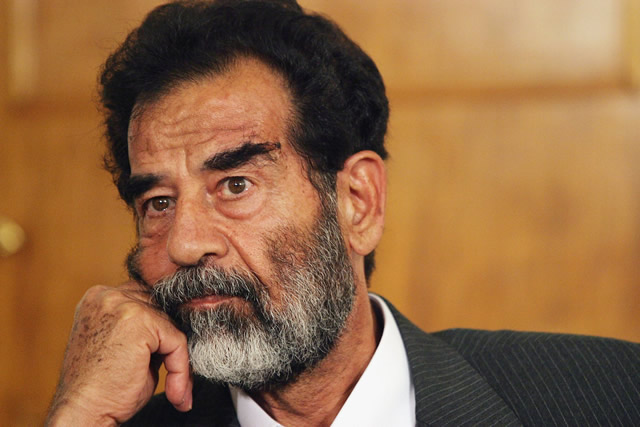Iran nuke deal: The high stakes

Yusuf Fernandez Correspondent
Since the Islamic Revolution in Iran which overthrew the dictatorship of US-backed Shah in 1979, a constant in US foreign policy has been an unrelenting hostility to Iran. Washington supported Iraq’s former leader Saddam Hussein’s war against Iran (1980-1988). In 2003, the Bush administration prepared plans for war with Iran. Since 2011, the US and its European Union allies have subjected Iran to the toughest economic sanctions regime in history.
However, the US strategy has changed in recent years. After the failure of the US wars in Afghanistan and Iraq, where Washington has been unable to defeat the insurgencies or persuade the governments of these nations to submit to its diktats, US public and political establishment do not want to see the country drawn into new conflicts in the Middle East.
At the same time, Washington is wary of the rise of China in the Asia-Pacific region and the world. Obama has approved the new “pivot to Asia” strategy which seeks to confront China’s growing role in the region, where the US is trying to build a new anti-Beijing alliance. The pro-US Australian executive and Shinzo Abe’s government in Japan, which is determined to play a more assertive role in Asia and seeks to scrap the so-called “pacifist clause” in the Japanese constitution, have become US natural allies in this strategy.
The Ukraine crisis has also pushed the United States and its NATO allies into a strategic and political confrontation with Russia. Moscow has taken measures to strengthen its military power, including the development of new warships, war-planes and nuclear missiles. It is also promoting the Euroasian Union with close allies such as Belarus, Kazakhstan, Armenia and other countries.
Iran is a central player in this game. A big and populated country, Iran has the second gas and third oil reserves in the world. Its geo-strategic position is unique. It links Central Asia with the Middle East and the Persian Gulf. It has built a strong alliance with some countries of the region, including Syria, Iraq and Lebanon. Millions of Muslims in the world also follow the leader of Islamic Revolution Ayatollah Seyyed Ali Khamenei and other Iranian religious leaders.
Iran’s relations with Africa, Asia and Latin America are becoming increasingly important.
For decades, the US, which has always known that Iran has no intention to build nuclear weapons as evidence shows, has used this issue to pressure Iran and try to curb its technological and economic development. Now, the situation in the world has changed and the US is trying to bring the issue to its real perspective. The nuclear dispute with Iran has become a burden for the US because it prevents it from putting into practice its anti-Chinese and anti-Russian strategy and thus it has to be solved.
Iran has also become the bulwark of anti-terrorist fight in the Middle East. Tehran is supporting Iraq, Syria and Lebanon against the terrorist aggression which is being fuelled by Saudi Arabia, Qatar and Turkey. Western countries have supported for years the effort of these countries to use terrorists as proxies in their war against Iran-friendly governments in the region, but now they fear the growing threat of these groups, which are determined to hit Western countries. Western governments and media are already changing their stances towards Iran and Syria and starting to look for cooperation with them in this fight.
At the same time, US companies are eager to enter the Iranian market. They see Iran as a new El Dorado where huge benefits can be gotten. Until now, Chinese and Russian and, to a lesser extent, European companies, were much better positioned to take advantage of the lifting of Iran sanctions. US companies are trying to change this situation and return to Iran but they need Washington to scrap unilateral sanctions in order to achieve this goal.
Meanwhile, the Israeli influence and the Zionist Lobby’s pressure on Congress have become a main obstacle for the implementation of this new strategy. They have a great influence on US foreign policy but this time their interests clash with those of an important part of US political and military establishment and those of US big corporations.
This could make them lose their battle against the Iran deal. In an open challenge to the Zionist Lobby, corporate media outlets such as the New York Times or the Washington Post, are supporting the nuclear agreement and are openly saying that an accommodation with Iran would strengthen the US’s hand against its most important and formidable geo-strategic rivals, Russia and China.
The US still needs Russia and China as mediators in its communication with Tehran and it is becoming increasingly problematic for Washington to rely on Moscow and Beijing in this effort at a time when relations are worsening.
There is no doubt that China and Russia understand this danger and have taken measures to keep their influence in Iran.
Russia and China can now also open the door to Iran’s accession to the Shanghai Co-operation Organisation.
This big organisation seeks to guarantee stability, promote the unity of Eurasia and counter US influence in this large space. — Press TV.









Comments